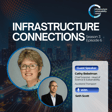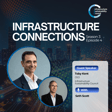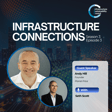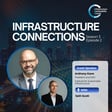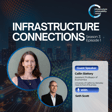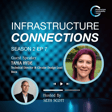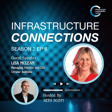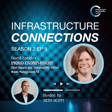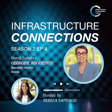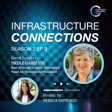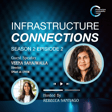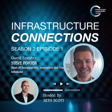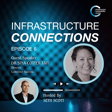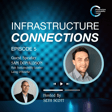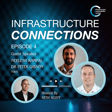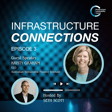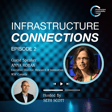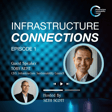
S3E5 - The Wellbeing of Future Generations w/ David Clubb
Host Seth Scott interviews David Clubb.
David Clubb is the Chair of the National Infrastructure Commission for Wales. He is also the Head of Climate Action at Cardiff Metropolitan University. He also founded Afallen, one of Wales' leading sustainability consultancies. Prior to that, he was Director of RenewableUK, the award-winning trade body for sustainable energy.
Wales is realising several outstanding infrastructure goals:
1. The Wellbeing of Future Generations Act looks out for the generations not yet born
2. Active travel modal shift implementation including a "cycle superhighway"
3. 65% national recycling rate, one of the highest in the world
4. An 80-year Infrastructure Investment Strategy that starts with “Our economic well-being is without any doubt tied to our environmental, cultural and social well-being."
5. Nature on the Board
👉 We'd love to hear your feedback, share your questions or comments below.
👉 Like & Subscribe so you won't miss out on our upcoming episodes!
👉 Keep up to date with the Infrastructure Sustainability Council:
Website: https://www.iscouncil.org/
LinkedIn: / infrastructure-sustainability-council
